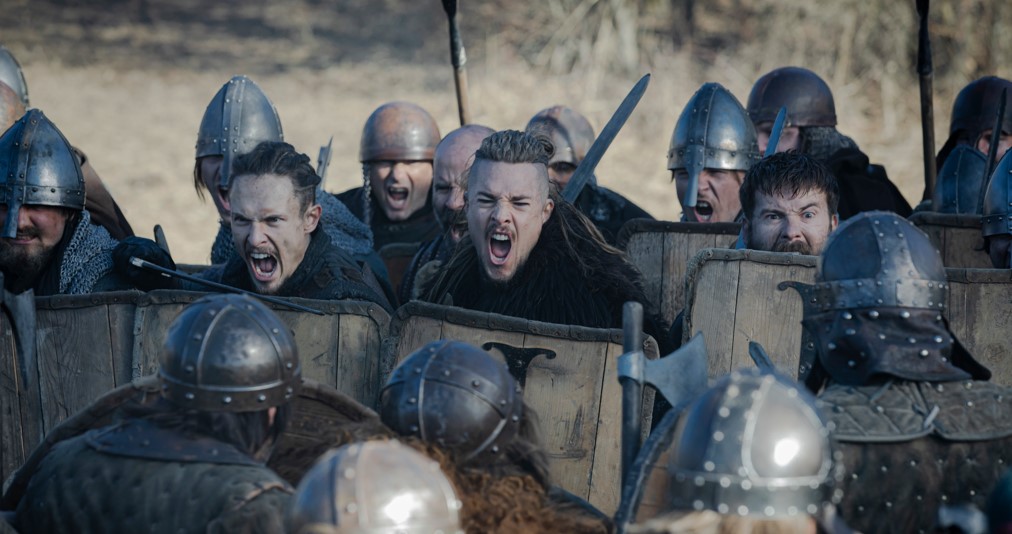The Netflix film ‘Seven Kings Must Die’ is a direct sequel of the BBC Two/Netflix series ‘The Last Kingdom’ and serves as the concluding chapter in the story of Uhtred of Bebbanburg (Alexander Dreymon). Although he was born a Saxon to a former lord of Bebbanburg, Uhtred was raised a Dane, adhering to Norse paganism. As an adult, circumstances lead him to fight for Alfred the Great, the king of the last Saxon kingdom in England. After Alfred’s passing, Uhtred serves Alfred’s son, Edward, though their relationship is as complex as the one between Uhtred and Alfred.
The narrative of ‘Seven Kings Must Die’ begins right after Edward’s death. As the struggle for succession breaks out, Uhtred declares his support for Aethelstan, not knowing that the carefree boy he raised is no longer the same. As enemies of England begin to stir in their lairs, it once more falls on Uhtred to serve as its protector. SPOILERS AHEAD.
Was Uhtred of Bebbanburg a Historical Warrior?
No, there seems to be no Uhtred, son of Uhtred, who fought side by side with the members of the Royal House of Wessex against the Danes. Both the TV show and the film are developed from the historical fiction series of novels ‘The Saxon Stories’ by Bernard Cornwell. According to reports, the character is loosely based on Uhtred of Bamburgh or Uhtred the Bold, though the two men are vastly different from each other.
The son of Waltheof I, ruler of Bamburgh (Bebbanburg), Uhtred of Bamburgh, built up an army with recruits from Bernicia and Yorkshire when King Malcolm II of Scotland invaded Northumbria in 1006 and soundly defeated the Scots. English King Ethelred subsequently named him Ealdorman of Bamburgh despite Uhtred’s father being alive at the time. Ethelred also orchestrated the murder of Ealdorman Ælfhelm of York and let Uhtred become the lord of the ealdormanry of York as well. This united northern and southern Northumbria under the house of Bamburgh.
Uhtred briefly submitted to King Sweyn Forkbeard of Denmark when the latter invaded England and forced Ethelred to retreat to Normandy. However, after Forkbeard’s death, Ethelred returned, and Uhtred shifted his loyalty back to him.

When Cnut the Great invaded England, Uhtred quickly realized that his forces were no match for those of the other man and accepted him as the King of England. Uhtred was eventually killed by Thurbrand the Hold at Wighill, with active support from Cnut, who split up Northumbria once more, letting Uhtred’s brother Eadwulf Cudel succeed him in Bernicia while installing Norwegian Eric of Hlathir as the ealdorman of southern Northumbria.
Arguably the biggest discrepancy between the historical Uhtred and the fictional Uhtred is that their timeline is a century apart. What makes Uhtred an incredible character in the TV show/film/books is that his insertion into a historical narrative is almost seamless. In ‘Seven Kings Must Die,’ the parental aspects of Uhtred’s character are explored, ultimately leading to him effectively becoming the progenitor of England. “I think he [Uhtred] has a lot to make up for, in terms of how he’s dealt with his kids and whether he’s made them a priority in the choices he’s made,” Dreymon reflected on the subject in an interview with Screen Rant. “Of course, he says that he has made those choices in order to protect them, but he just hasn’t been around.”
The actor continued, “I love that he comes through for Aethelstan, who isn’t his biological son, but he raised him. I think he feels very paternal towards him, and so it’s incredible to see him be put through everything that Aethelstan puts him through and still stick around. I’m really proud of the character for doing that.”
Read More: Seven Kings Must Die Ending, Explained: Does Uhtred Die?


You must be logged in to post a comment.